Religious world leaders met in Marrakesh from January 25th to 27th to issue a declaration which would insist on the protection of religious minorities in the Muslim world. Headed by the Moroccan Ministry of Endowments and Islamic Affairs, the conference is sponsored by the Forum for the Promotion of Peace in Muslim societies, a think tank organization based in the United Arab Emirates, led by Sheikh Abdullah bin Bayyah, and backed by US diplomacy.
Some 300 Islamic scholars, jurists, muftis (those capable of issuing fatwas) and government ministers from Muslim states attended the Conference in Marrakech to discuss the issue of protecting religious minorities in the Islamic world, including Christianity. The religious leaders represented Muslim-majority countries such as Pakistan, Iran, Iraq, Nigeria, Saudi Arabia, Turkey, Egypt and the host country, Morocco.
Among them, the major figures included Muhammad Taqi Usmani, a Hanafi Islamic scholar and Mufti from Pakistan, Ayatollah Seyyed Mostafa Mohaghegh Damad, an Iranian Shia cleric, the Iraqi Yazidi leader Khalid Amin Roumi and the Palestinian Bishop Munib Younan, who is the elected president of the Lutheran World Federation since 2010 and the Evangelical Lutheran Church Bishop of Palestine.
Muhammad’s Charter of Medina
The summit looked to Muhammad’s Charter of Medina when drafting the declaration. From the seventh century, the document gives instructions for governing a religious pluralistic state, and was issued shortly after Muhammad arrived in Medina.
In particular, the declaration references the charter’s “principles of constitutional contractual citizenship” and “freedom of movement, property ownership, mutual solidarity and defense, as well as principles of justice and equality before the law,” in regards to Muslims and non-Muslims.
“The objectives of the Charter of Medina provide a suitable framework for national constitutions in countries with Muslim majorities, and the United Nations Charter and related documents, such as the Universal Declaration of Human Rights, are in harmony with the Charter of Medina, including consideration for public order,” states the Marrakesh Declaration.
Marrakesh Declaration
In the Name of God, the All-Merciful, the All-Compassionate
Executive Summary of the Marrakesh Declaration on the Rights of Religious Minorities in Predominantly Muslim Majority Communities.
25th-27th January 2016
WHEREAS, conditions in various parts of the Muslim World have deteriorated dangerously due to the use of violence and armed struggle as a tool for settling conflicts and imposing one’s point of view;
WHEREAS, this situation has also weakened the authority of legitimate governments and enabled criminal groups to issue edicts attributed to Islam, but which, in fact, alarmingly distort its fundamental principles and goals in ways that have seriously harmed the population as a whole;
WHEREAS, this year marks the 1,400th anniversary of the Charter of Medina, a constitutional contract between the Prophet Muhammad, God’s peace and blessings be upon him, and the people of Medina, which guaranteed the religious liberty of all, regardless of faith;
WHEREAS, hundreds of Muslim scholars and intellectuals from over 120 countries, along with representatives of Islamic and international organizations, as well as leaders from diverse religious groups and nationalities, gathered in Marrakesh on this date to reaffirm the principles of the Charter of Medina at a major conference;
WHEREAS, this conference was held under the auspices of His Majesty, King Mohammed VI of Morocco, and organized jointly by the Ministry of Endowment and Islamic Affairs in the Kingdom of Morocco and the Forum for Promoting Peace in Muslim Societies based in the United Arab Emirates;
AND NOTING the gravity of this situation afflicting Muslims as well as peoples of other faiths throughout the world, and after thorough deliberation and discussion, the convened Muslim scholars and intellectuals:
DECLARE HEREBY our firm commitment to the principles articulated in the Charter of Medina, whose provisions contained a number of the principles of constitutional contractual citizenship, such as freedom of movement, property ownership, mutual solidarity and defense, as well as principles of justice and equality before the law; and that,
The objectives of the Charter of Medina provide a suitable framework for national constitutions in countries with Muslim majorities, and the United Nations Charter and related documents, such as the Universal Declaration of Human Rights, are in harmony with the Charter of Medina, including consideration for public order.
NOTING FURTHER that deep reflection upon the various crises afflicting humanity underscores the inevitable and urgent need for cooperation among all religious groups, we
AFFIRM HEREBY that such cooperation must be based on a “Common Word,” requiring that such cooperation must go beyond mutual tolerance and respect, to providing full protection for the rights and liberties to all religious groups in a civilized manner that eschews coercion, bias, and arrogance.
BASED ON ALL OF THE ABOVE, we hereby: Call upon Muslim scholars and intellectuals around the world to develop a jurisprudence of the concept of “citizenship” which is inclusive of diverse groups. Such jurisprudence shall be rooted in Islamic tradition and principles and mindful of global changes.
Urge Muslim educational institutions and authorities to conduct a courageous review of educational curricula that addresses honestly and effectively any material that instigates aggression and extremism, leads to war and chaos, and results in the destruction of our shared societies;
Call upon politicians and decision makers to take the political and legal steps necessary to establish a constitutional contractual relationship among its citizens, and to support all formulations and initiatives that aim to fortify relations and understanding among the various religious groups in the Muslim World;
Call upon the educated, artistic, and creative members of our societies, as well as organizations of civil society, to establish a broad movement for the just treatment of religious minorites in Muslim countries and to raise awareness as to their rights, and to work together to ensure the success of these efforts.
Call upon the various religious groups bound by the same national fabric to address their mutual state of selective amnesia that blocks memories of centuries of joint and shared living on the same land; we call upon them to rebuild the past by reviving this tradition of conviviality, and restoring our shared trust that has been eroded by extremists using acts of terror and aggression;
Call upon representatives of the various religions, sects and denominations to confront all forms of religious bigotry, villification, and denegration of what people hold sacred, as well as all speech that promote hatred and bigotry;
AND FINALLY, AFFIRM that it is unconscionable to employ religion for the purpose of aggressing upon the rights of religious minorities in Muslim countries.
Marrakesh
January 27th, 2016

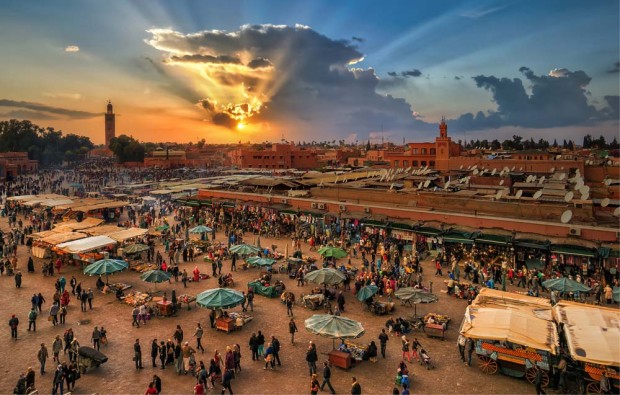
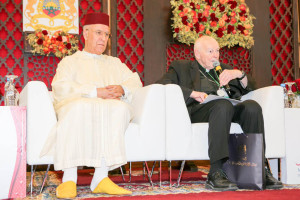
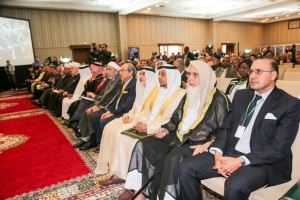
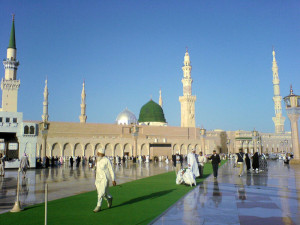


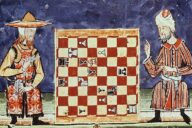
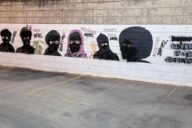









2 Comments
Hi,
I am interested in acquiring the photos you have used to illustrate your article on the Marrakech declaration (https://twistislamophobia.org/en/2016/01/30/marrakesh-declaration-on-the-rights-of-religious-minorities/).
Could I please ask where you found this images? I would like to contact the source and ask permission to use them in one of our reports.
Best wishes,
Clare Creegan
Aid to the Church in Need
Hello, thank you for your interest. In fact we think you can use them with no problem, because they are pictures borrowed from internet with free copyright. Best wishes, FUNCI.